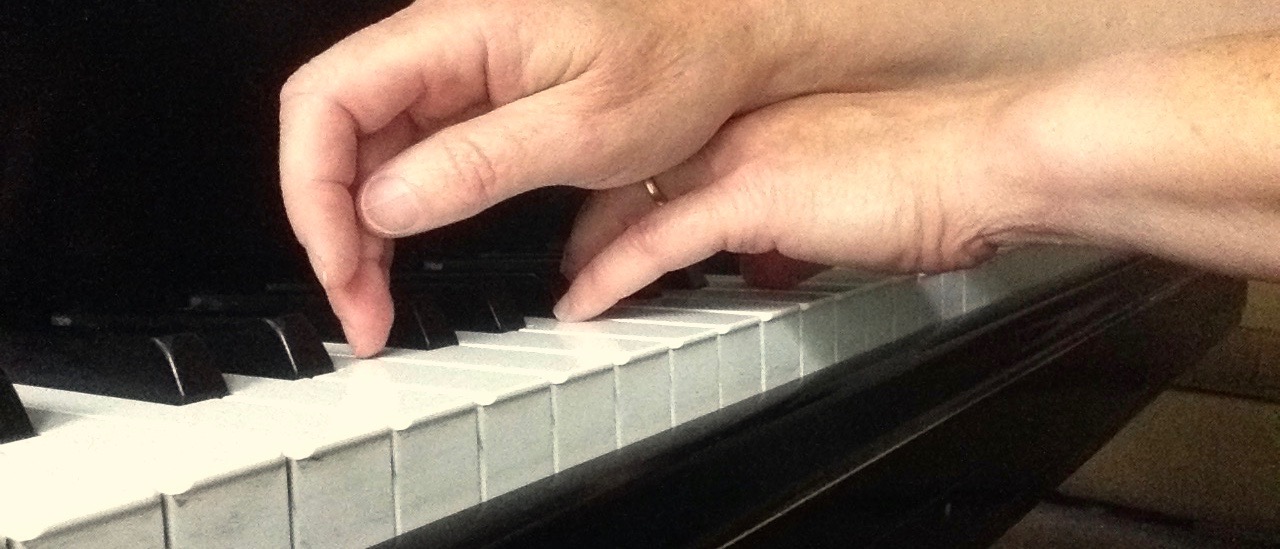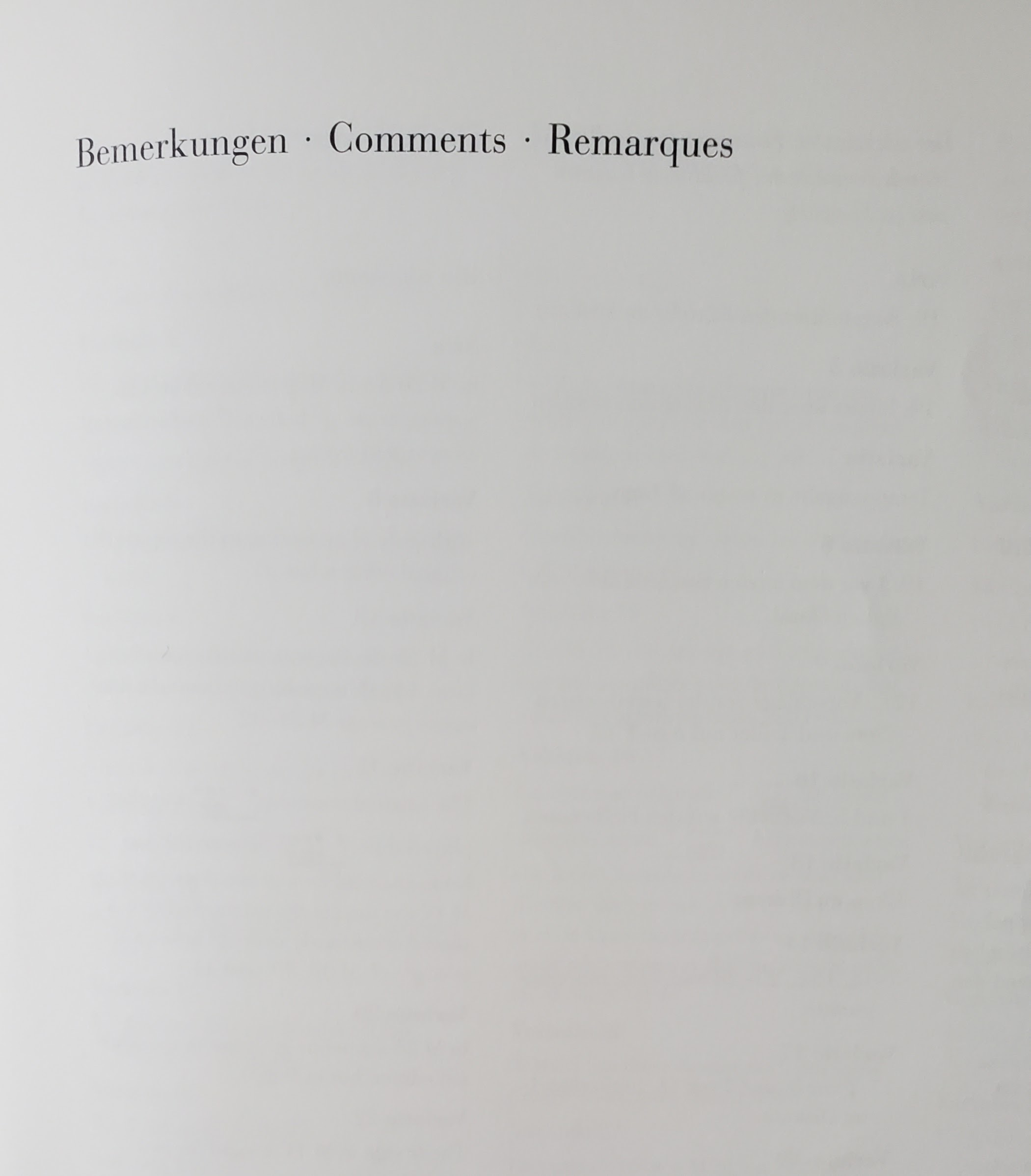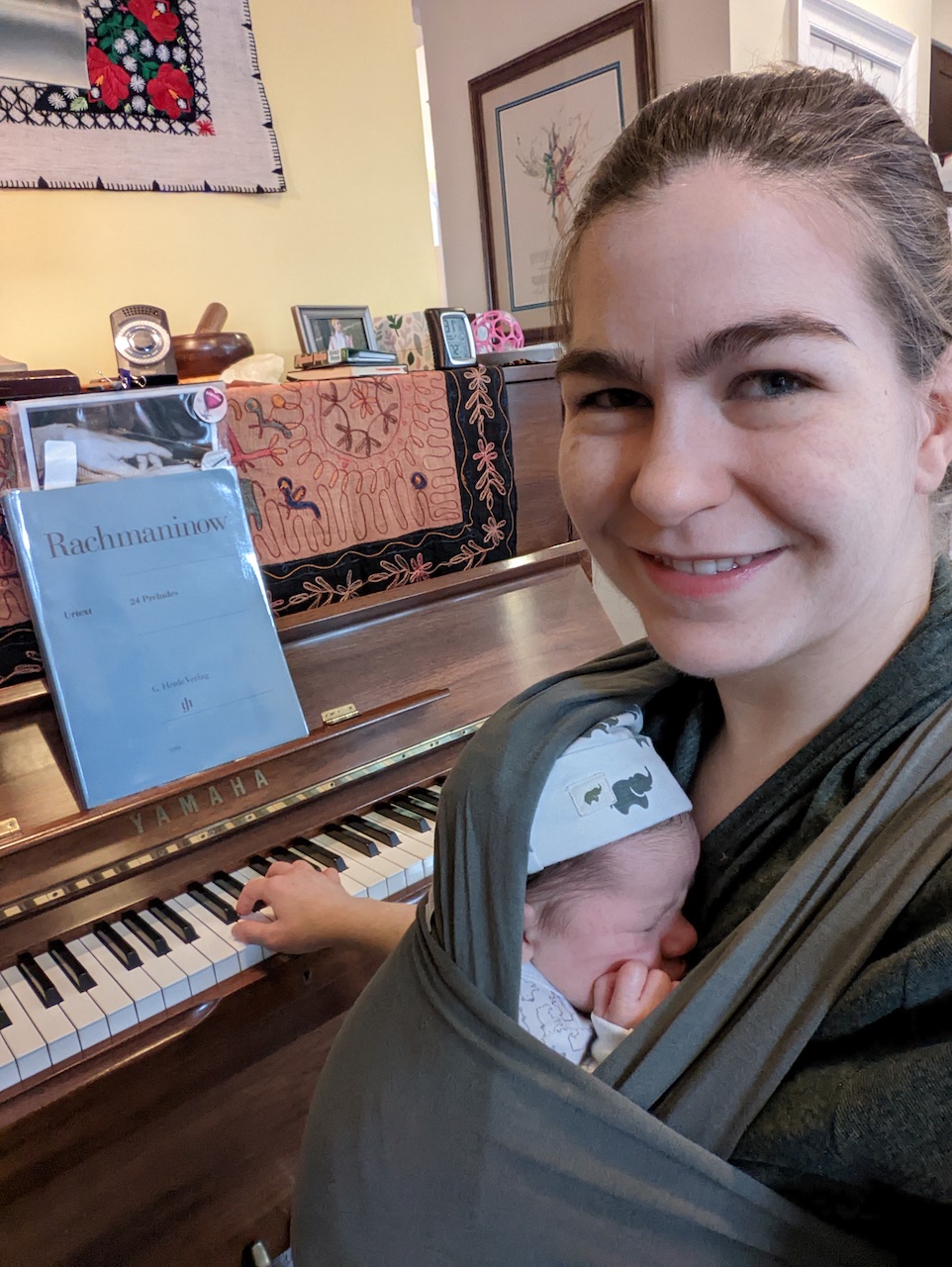HELEN 6/7: On June 1, the tireless Grace and Celia began playing through the Bach Inventions and Sinfonias, one each per day, from June 1-15!
GRACE 6/2: Hi 24-pieces club! I started right out the gate playing catch-up. Today I played Inventions and Sinfonias 1 and 2.
I’ve never played through the sinfonias, though I am familiar with a few of them. #2 is really lovely, and I’m kind of surprised I never played invention #2, as c minor is one of those keys that always feels right in my hands and brain. Of course I did play invention #1 as a kid, and therefore was able to actually pay more attention to dynamics and phrasing when playing it, which is always nice. That being said, boy do my ornaments need work! The trills have flagged over the years…
CELIA 6/3: Grace, I did the same thing yesterday, playing Invention 1 and Sinfonia 1, followed by Invention 2 and Sinfonia 2. I’m quite familiar with Invention 1, because I think I once played it for a church service prelude. I find it quite cheerful!
I enjoyed playing Invention 2, which I have listened to many times but not played much before. The repeating eighth note motif is mournful and beautiful. I completely agree with Grace’s comment about ornaments – I need more practice with them! I loved the harmonies in Sinfonia 2, especially in the sections where right or left hand had running sixteenth notes.
Today I played Invention 3 and Sinfonia 3 (trying something new where I play piano before baby wakes up for the morning – it worked for 10 minutes 
I didn’t find the melody of the invention very intuitive, but really enjoyed the playful nature of the sinfonia. Listening to Glenn Gould playing it was good inspiration, although as usual, I played it much more slowly than he does.
Happy Thursday, everyone!
HELEN 6/3: How wonderful to have Grace and Celia leading us forward here. I’ve had a murderous few days, with plenty time to play piano . . . at midnight . . . and a young family next door who might find that objectionable. Still, I picked up the book today and powered through the first three inventions and sinfonias. As usual my reading improved considerably by the third set. I really love the 3rd invention — it has a dance rhythm that, when you think of it as a circular dance motif, works better, a trick of accenting the phrases almost like a hemiola.
This is a lovely project for part of June!
GRACE 6/4: A familiar invention today. What year did I learn this, Helen? 2007? Wow. All my old bad fingering habits just come flooding back 
Love this sinfonia! I feel like I’m relearning the harmonic language of Bach after several months away. It’s fun!
HELEN 6/4: 2004, Grace. !!!
GRACE 6/4:  wow. I was 12.
wow. I was 12.
CELIA 6/4: I learned this one, too!
HELEN 6/7: (delayed response) Celia learned it in 2003!
CELIA 6/6: I played Invention and Sinfonia 5 yesterday and loved the invention! I wrote in all the fingering and I think I am going to try to learn it.
Hope everyone is having a good weekend!
NADIA 6/8: Hi everyone, Sabrina and I have been playing through the inventions and I’m really enjoying them! I remember trying to learn D minor (#4) in elementary/middle school and having to call it quits because of the long trills which sadly I’m not much better at 10 years later. Today’s invention in F major, both Sabrina and I have played at one point in time and it’s one of my favorites. I really like the staccato notes throughout the piece. I look forward to playing through the rest of the inventions and maybe the sinfonias if we obtain a book.
GRACE 6/11: Hello friends, I’ve had a bit of a hectic week and have been falling behind on Bach, but I’m nearly caught up. I found sinfonia number 8 to be particularly lovely this week. I’ve barely played sinfonias before and I am really enjoying them. A bit of a work-out with the held notes… I continue to largely avoid trills and ornaments on my first read, but I’ll sometimes go back and try to work them in. It’s good practice!
GRACE 6/17: Finally got caught up and finished the inventions and sinfonias today. The b minor invention and sinfonia were really interesting! It took me awhile to figure out many of the patterns in the sinfonia, likely because of the overarching pattern of doing something twice, and then changing it the 3rd time through.
I also got started on the WTC since I know I’m going to be away for several days at the start of July. I played C major and c minor today. -Grace
HELEN 6/22: OK, what is this, nearly a week later, I am finally caught up and finished as of yesterday! I enjoyed the crossing hands passage in the b minor sinfonia especially. What a pleasure to play through the entire sinfonias without the weight of any other project at the same time — I listened to them much better playing only an invention and sinfonia daily. I am grateful to Grace and Celia for encouraging us along! Who else is working on these or finished them?
CELIA 6/27: Hi All, I finished playing through all the inventions and sinfonias about a week ago and have just been way behind on emails!
I decided to start learning Invention 5, because I really liked it and have been (slowly) working on that. I also would like to learn Sinfonias 8 and 9… 8 was just beautiful, and 9 was intriguing to me because it seemed to have more chromaticism than many of the other pieces. I also really loved the harmonies of Sinfonia 11. I have been listening to Glenn Gould playing all the pieces. Excited to get started with WTC soon! -Celia
HELEN 6/27: Thank you for this message, Celia! And thanks to Grace for keeping us moving this month (it looks like an earlier message got stopped in mid-thought right at the point of thanking Grace, and then sent, which is rather indicative of my life recently).
I am greatly looking forward to beginning WTCI in a few days, and I will update the blog with the recent emails from everyone. For those who played WTC last summer, I can promise a different experience second time around. It is different for me every year.
Love, Helen



 wow. I was 12.
wow. I was 12.





 , but we had fun. In addition, I’ve also been learning the G minor prelude which is in my “piano masterworks” book.
, but we had fun. In addition, I’ve also been learning the G minor prelude which is in my “piano masterworks” book. 